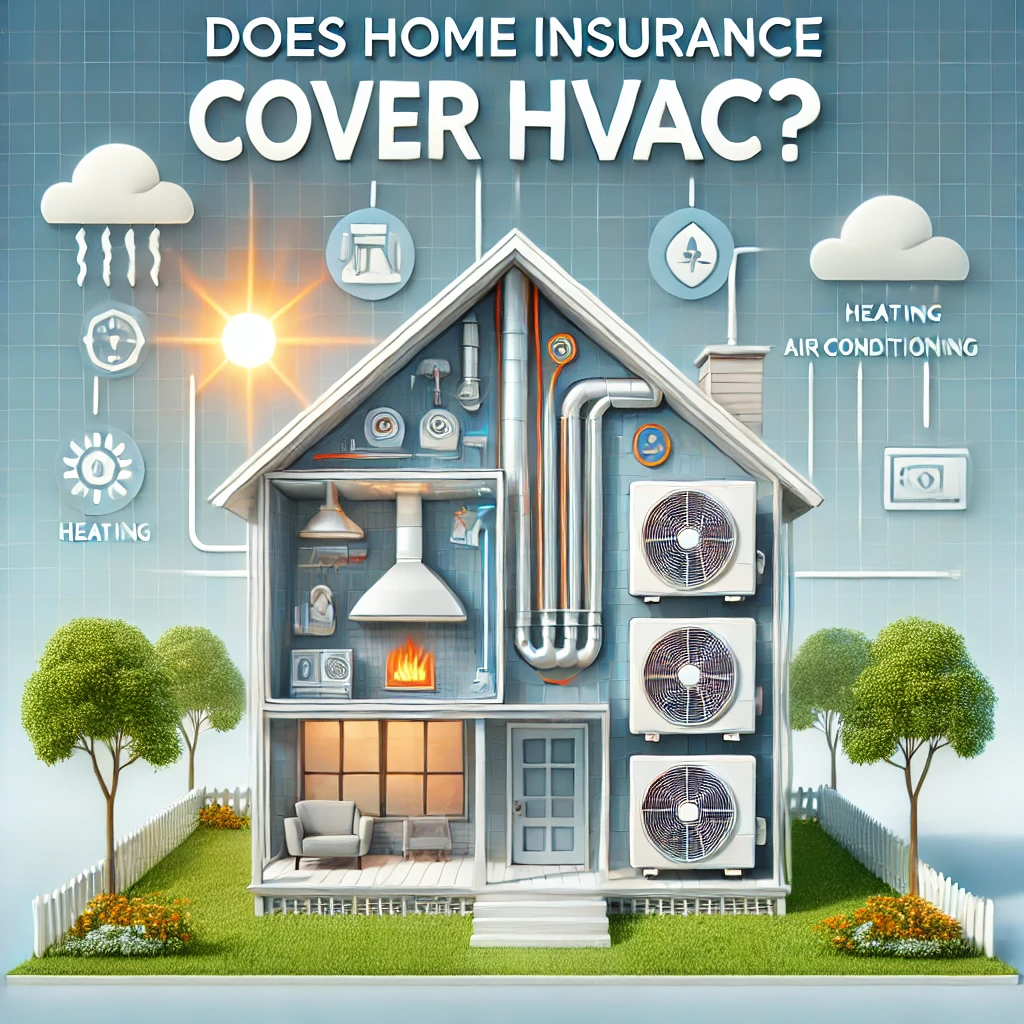Heating, Ventilation, and Air Conditioning (HVAC) systems play a crucial role in maintaining your home’s comfort, but what happens when they break down or get damaged? A common question homeowners ask is: Does home insurance cover HVAC? The answer depends on various factors, including the type of damage and the specific terms of your policy. In this article, we will explore when and how your HVAC system might be covered under your homeowners insurance, and what options you have if it’s not.
What Does HVAC Mean in Insurance?
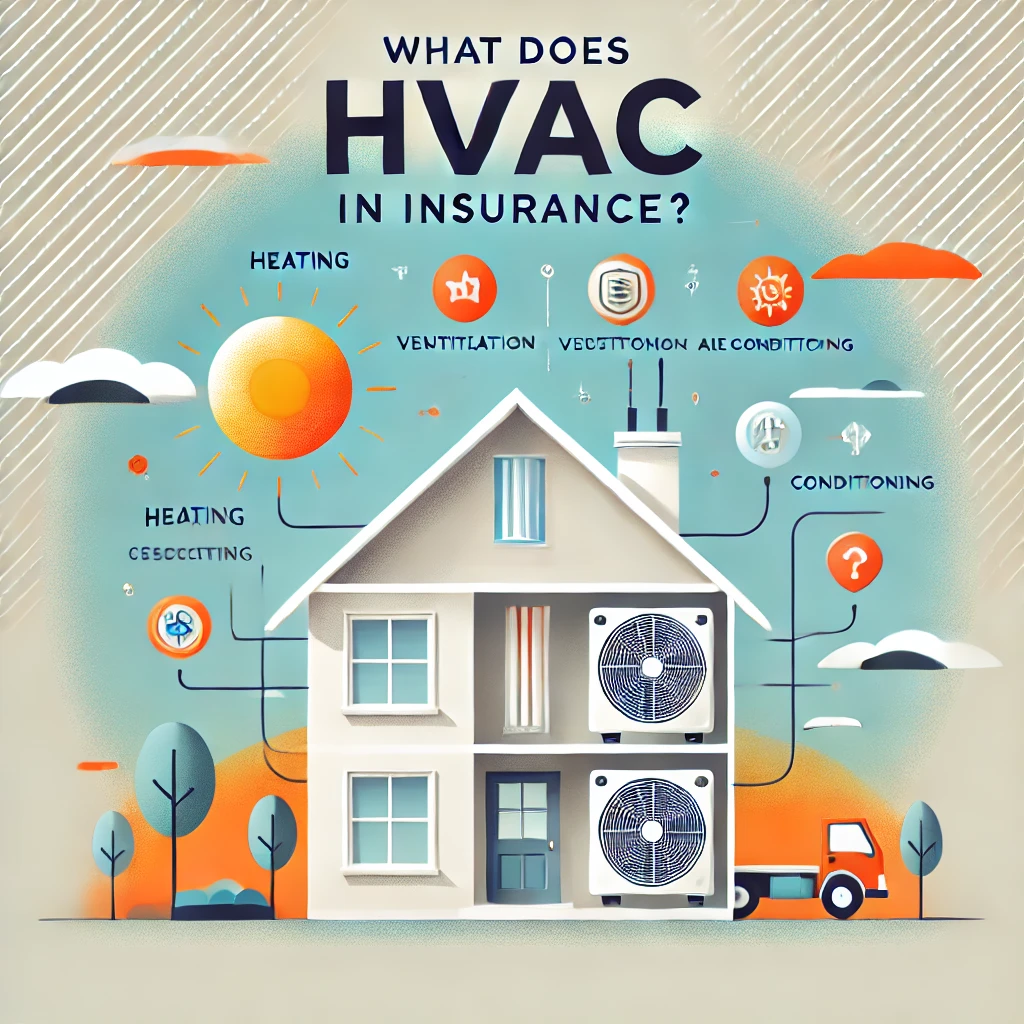
HVAC stands for Heating, Ventilation, and Air Conditioning. These systems regulate the temperature, air quality, and overall comfort of your home. In the context of homeowners insurance, HVAC coverage typically refers to the protection of these essential systems in the event of unexpected damage due to insured risks like fires, storms, or vandalism.
Homeowners insurance policies usually offer some level of protection for your HVAC system, but it’s essential to understand the scope of coverage and the limitations. HVAC systems are expensive to repair and even more costly to replace, so it’s crucial to know how your insurance might step in to help.
How Long Do HVAC Systems Last?
Before diving into when and how insurance might cover HVAC systems, it’s important to understand the typical lifespan of these units. The longevity of your HVAC system can vary based on several factors, such as the type of system, how well it’s maintained, and how often it’s used.
On average:
- Furnaces typically last 15 to 20 years.
- Air conditioners have a lifespan of about 10 to 15 years.
- Heat pumps last around 10 to 15 years.
- Boilers can last 15 to 30 years.
Regular maintenance can extend the life of your HVAC system, but when a unit breaks down due to old age or wear and tear, your homeowners insurance likely won’t help with repairs or replacements. Knowing this, many homeowners wonder, does home insurance cover HVAC, and if so, under what circumstances?
When Is HVAC Covered by Home Insurance?
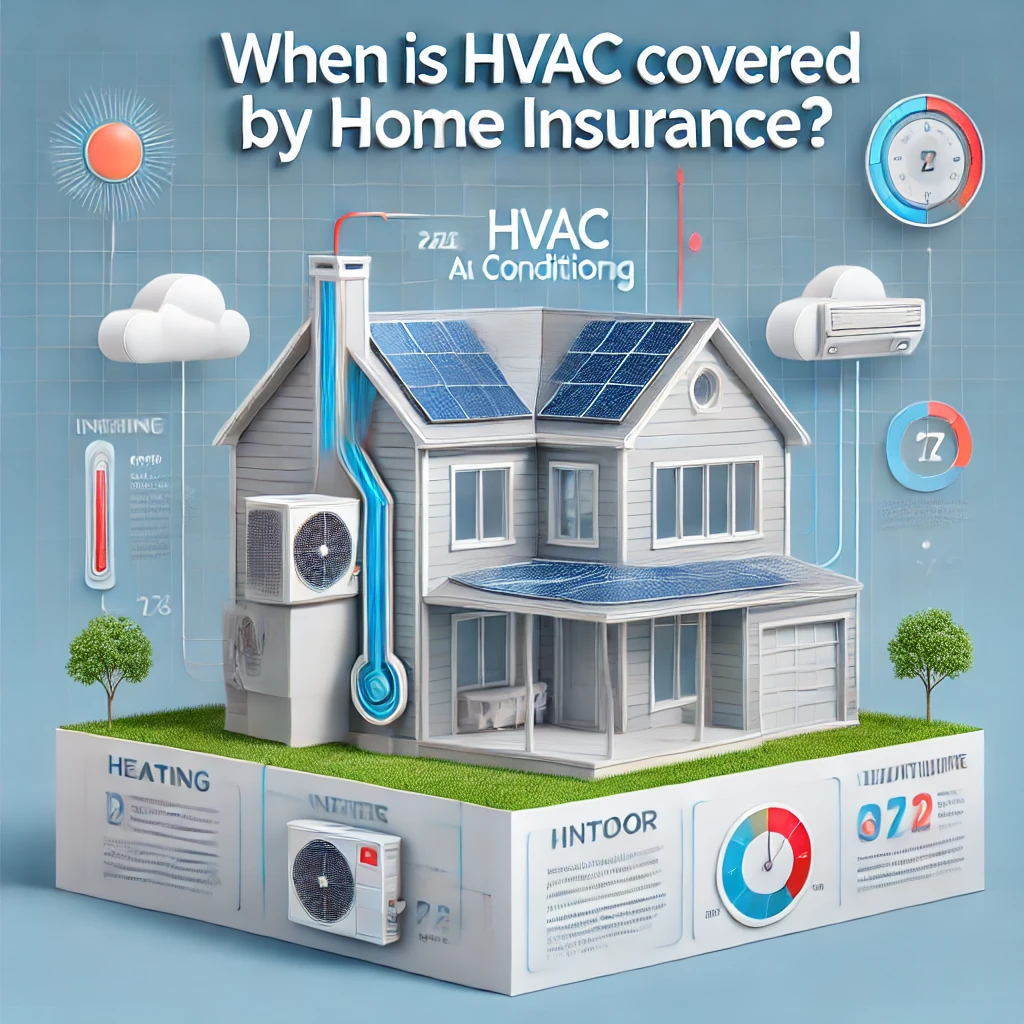
Homeowners insurance typically covers HVAC systems when they are damaged or destroyed by a covered peril, also known as an insured event. A peril is an event that can cause damage to your property, and most standard homeowners policies will list the covered perils.
Common covered perils include:
- Fire: If your HVAC system is damaged or destroyed by a house fire, your homeowners insurance will usually cover the cost of repairs or replacement.
- Lightning strikes: Electrical surges from lightning strikes can cause damage to the electrical components of your HVAC system, and this is typically covered under most policies.
- Windstorms and hail: If severe weather causes damage to your HVAC unit, particularly if it’s an external air conditioning unit, this may be covered by your policy.
- Vandalism: If someone deliberately damages your HVAC system, insurance is likely to cover the repairs or replacement.
- Falling objects: In the event that a tree or other object falls on your HVAC unit and causes damage, your policy may cover the costs.
For example, if your air conditioning unit is destroyed by a fire, your homeowners insurance should help cover the costs of repair or replacement. However, the specifics of coverage can vary depending on your insurance provider, so it’s essential to review your policy and check with your insurance agent for details.
When Is HVAC Not Covered by Home Insurance?
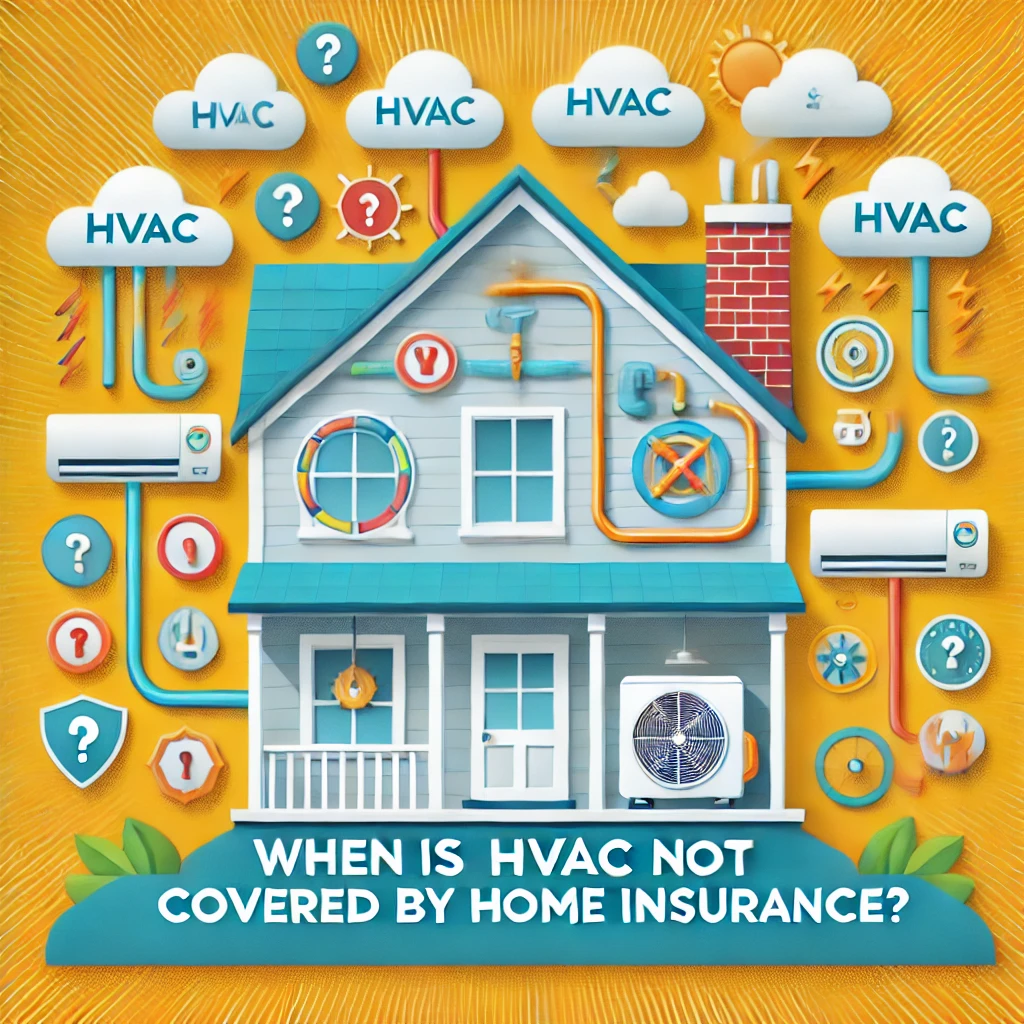
While homeowners insurance covers damage from specific perils, there are many situations where your HVAC system may not be covered. The keyword does home insurance cover HVAC often comes into play when discussing exclusions from policies.
Here are common scenarios when HVAC systems are not covered by homeowners insurance:
- Normal wear and tear: HVAC systems naturally degrade over time due to regular usage. This is a routine maintenance issue and is not covered by insurance. For example, if your system breaks down after 15 years of use, this would not be considered a covered event.
- Lack of maintenance: Failure to properly maintain your HVAC system can lead to breakdowns, which would not be covered by your homeowners insurance. Regular upkeep, such as changing filters and scheduling annual maintenance checks, is crucial to keep your system running efficiently.
- Mechanical failure: If the internal components of your HVAC system simply wear out or malfunction, homeowners insurance will not cover the repairs or replacement.
- Pest or rodent damage: Damage caused by animals or insects, such as chewed wires or nests inside your HVAC system, is generally not covered by insurance.
- Floods or earthquakes: Standard homeowners policies do not cover damage caused by floods or earthquakes. If your HVAC system is damaged in a flood or earthquake, you would need separate flood or earthquake insurance to be reimbursed for the damage.
- Mold damage: If mold develops in your HVAC system due to poor maintenance or other excluded causes, homeowners insurance will not cover the cost of mold remediation or HVAC repairs.
Knowing what is excluded from your policy is just as important as knowing what is included. Many homeowners find themselves surprised when their claim is denied due to common exclusions like mechanical failure or lack of maintenance.
Home Warranties & Equipment Breakdown Coverage
If your HVAC system isn’t covered by homeowners insurance in certain situations, you might consider alternative options like a home warranty or equipment breakdown coverage. These types of coverage can help protect against mechanical failures or the high cost of HVAC repairs due to wear and tear.
- Home warranties: A home warranty is a service contract that covers repairs or replacements for major systems and appliances in your home, including your HVAC system. This can be a valuable safety net if your HVAC system fails due to normal wear and tear or a mechanical issue not covered by insurance. Home warranties usually last for a year and can be renewed annually. They typically cover the costs of repairs but may also include replacement coverage for HVAC units that are beyond repair. Keep in mind, however, that home warranties often come with limitations, such as service call fees and coverage caps.
- Equipment breakdown coverage: Some insurance companies offer this type of add-on coverage, which can protect your HVAC system from mechanical or electrical failure. Equipment breakdown coverage is a supplement to homeowners insurance and can fill in the gaps where your standard policy falls short. For instance, if your HVAC system fails due to a power surge or mechanical malfunction, equipment breakdown coverage could cover the repair or replacement costs, minus your deductible. This type of coverage is generally more affordable than a home warranty and can be bundled with your existing homeowners insurance.
Both of these options can complement your homeowners insurance and provide additional peace of mind regarding HVAC protection. For example, does home insurance cover HVAC when mechanical failure occurs? No, but equipment breakdown coverage might.
How to File an HVAC Insurance Claim
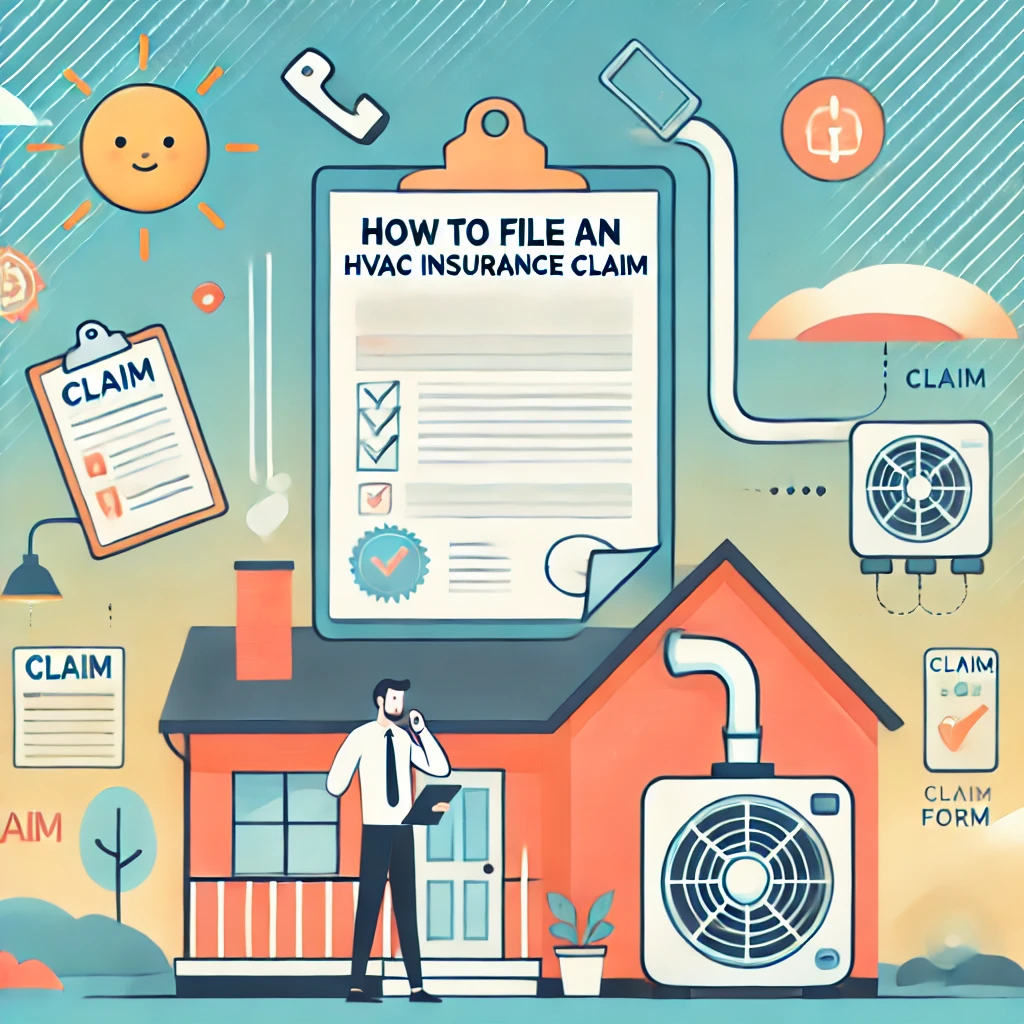
If your HVAC system is damaged due to a covered peril, you’ll want to file a claim with your homeowners insurance company. Here’s how the process typically works:
- Document the damage: As soon as you notice the damage, take pictures and make detailed notes about what happened. If possible, include receipts or proof of purchase for your HVAC system to help speed up the claims process.
- Contact your insurance company: Reach out to your insurance provider to report the damage. They will ask you questions about the cause of the damage, and a claims adjuster may be sent to your home to assess the damage.
- Review your deductible: Before filing a claim, make sure the cost of the damage exceeds your deductible. If the cost of repairs or replacement is less than your deductible, it may not make sense to file a claim.
- Get repair estimates: Depending on the extent of the damage, your insurance company may require you to get estimates from licensed HVAC contractors. This will help determine how much your insurance company will reimburse you for the repairs.
- Complete the repairs: Once your claim is approved, you can hire a contractor to repair or replace your HVAC system. Your insurance company will issue payment, typically after the work has been completed.
It’s essential to stay organized throughout the claims process and keep records of all communications with your insurance company. This can help ensure a smooth process and timely reimbursement for your HVAC repairs.
Conclusion
So, does home insurance cover HVAC? The answer depends on the circumstances. If your system is damaged by a covered peril such as fire, wind, or vandalism, your homeowners insurance will likely cover the costs of repair or replacement. However, wear and tear, mechanical failure, and lack of maintenance are generally not covered. To fill in the gaps, you may want to consider a home warranty or equipment breakdown coverage.
Ultimately, understanding your homeowners insurance policy and knowing what’s covered and what isn’t will help you make informed decisions and protect your home’s vital systems. Always review your policy carefully and consult with your insurance provider to ensure you have the coverage you need for your HVAC system.
FAQs
1. Can I Get Coverage for HVAC Wear and Tear?
No, homeowners insurance typically does not cover wear and tear. HVAC systems naturally degrade over time due to regular usage, and this is considered a maintenance issue. If your HVAC system fails due to aging or regular use, you will need to cover the repair or replacement costs out of pocket or through a home warranty.
2. Does Home Insurance Cover HVAC Maintenance Costs?
No, home insurance does not cover routine HVAC maintenance. Homeowners are responsible for regular upkeep, such as filter changes and annual inspections, to ensure their system runs efficiently. Failure to maintain your HVAC system could lead to problems that would not be covered by your insurance policy.
3. What Should I Do if My HVAC Fails During a Storm?
If your HVAC system is damaged during a storm due to a covered peril like wind or hail, your first step should be to document the damage and contact your insurance provider to file a claim. Your homeowners insurance policy may cover repairs or replacement costs if the damage is due to a covered event.
4. How Do I Know if My HVAC Damage Is Covered by Insurance?
To know if your HVAC damage is covered, check your homeowners insurance policy to see if the event that caused the damage is listed as a covered peril. For example, damage caused by fires, storms, or vandalism is typically covered, but normal wear and tear or neglect is not. It’s always a good idea to consult with your insurance agent for clarification.
5. Will My Insurance Cover a New HVAC System?
Your insurance will cover a new HVAC system only if the old system is damaged or destroyed by a covered peril, such as fire or windstorm. However, if your HVAC system fails due to age or wear and tear, insurance will not cover the cost of a new system. In this case, you might consider a home warranty or equipment breakdown coverage.
6. What Is the Difference Between Home Insurance and a Home Warranty for HVAC?
Home insurance covers your HVAC system only when it’s damaged by a covered peril, such as fire or storms. A home warranty, on the other hand, covers repairs or replacements due to normal wear and tear or mechanical failures. A home warranty can be a good option for protecting your HVAC system beyond what your insurance policy offers.
7. Does Equipment Breakdown Coverage Include HVAC?
Yes, equipment breakdown coverage often includes HVAC systems. This type of add-on coverage to your homeowners insurance policy covers the repair or replacement of your HVAC system if it breaks down due to a mechanical or electrical failure, which is not typically covered by standard homeowners insurance.
8. How Can I Prevent My HVAC from Needing Major Repairs?
Regular maintenance is key to preventing major HVAC repairs. Change air filters regularly, schedule annual inspections, and address any small issues before they become big problems. Proper maintenance not only extends the life of your HVAC system but also ensures it operates efficiently, reducing the chances of expensive breakdowns.
9. Can I Get a Discount on Home Insurance with a New HVAC System?
In some cases, upgrading to a new, energy-efficient HVAC system may qualify you for a discount on your homeowners insurance. Many insurers offer discounts for systems that improve home safety or efficiency, so it’s worth asking your provider if you can benefit from reduced premiums with a new HVAC unit.
10. What Should I Do if My HVAC Claim Is Denied?
If your HVAC insurance claim is denied, review the denial letter to understand the reason for the denial. In many cases, claims are denied due to issues like lack of maintenance, normal wear and tear, or uncovered perils. If you believe the denial was unjust, you can dispute the decision by providing additional documentation or consulting with your insurance agent for further action.

